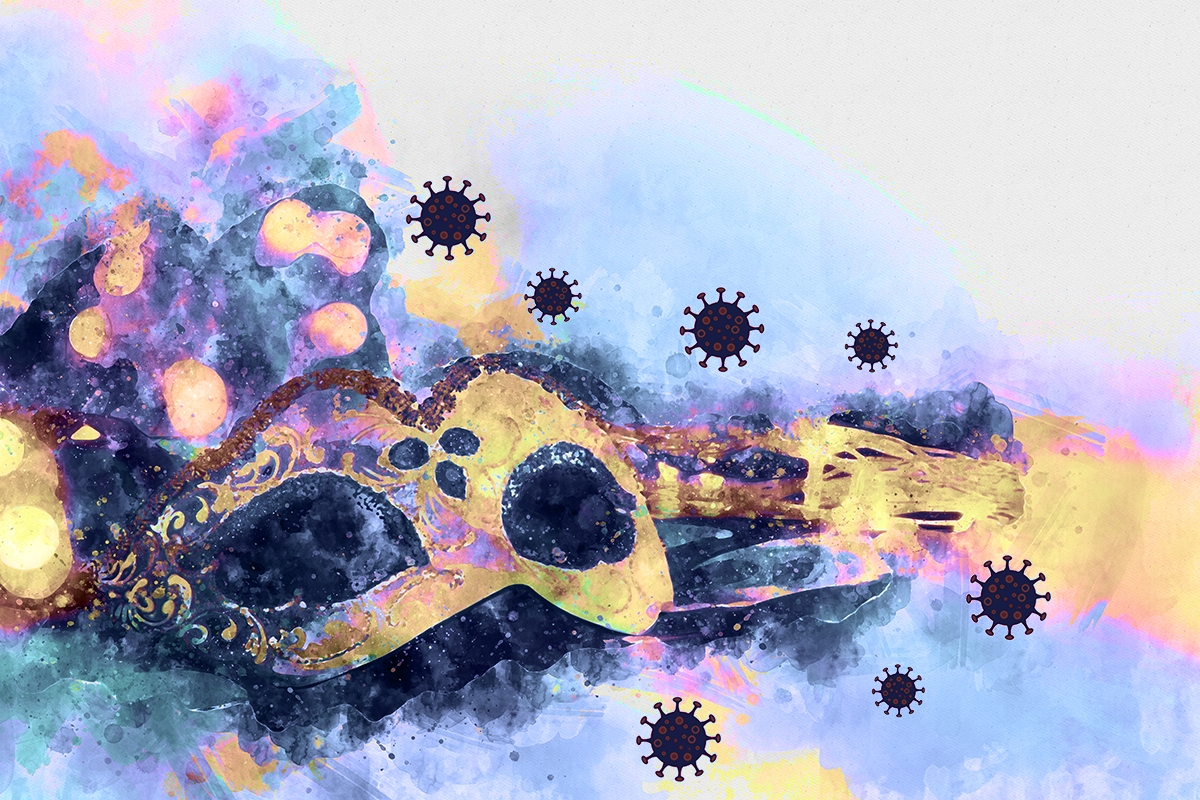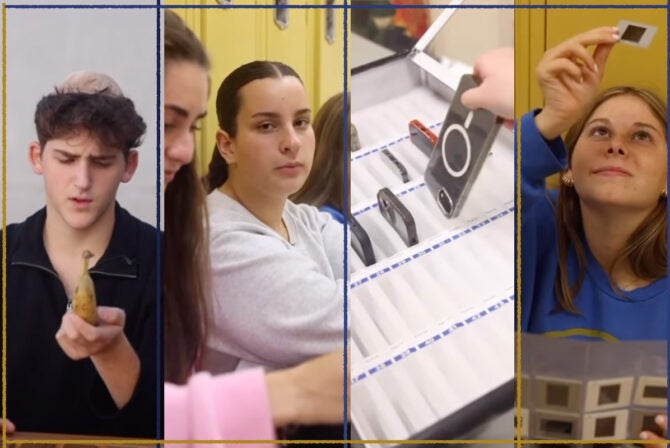Last March, I wrote a reflection for Kveller called “Purim in a Time of Pandemic.” In that article I reported about the start of shutdowns in Seattle, the novelty of hearing the megillah reading over Zoom (ah! so innocent we were), and the uncertainty of an “unscheduled staycation of unknowable duration.” I offered a heartfelt prayer that we could all, as a community, keep connecting.
“And may next year’s Purim bring more joy and less suffering for all,” I concluded hopefully.
Back then, I definitely didn’t anticipate that I’d be writing a second-annual “Purim in a pandemic” article. But the next Purim is mere days away, and the coronavirus pandemic is still raging, and we are here.
Where are we, exactly?
Well, for many, we are seemingly stuck in a frustrating, demoralizing pattern wherein each step forward seems to bring another obstacle. We are still adjusting best practices for masks; we are still arguing about the pros and cons of back-to-school; we are finally ramping up vaccinations, but possibly not fast enough to fight the virus variants. As I recently griped to a friend, it feels like we’re in a movie, and each plot twist that could swerve in the wrong direction goes there. Sustaining hope in this constantly shifting landscape is a tall order.
We’re also in a state of prolonged, agonizing collective grief, one that had little to no visible public acknowledgment until a beautiful memorial was held the night before President Biden’s inauguration. (If you haven’t seen it, watch this Michigan nurse sing “Amazing Grace” in honor of Covid victims — just keep the tissues nearby.) With many cities and locales approaching the one-year anniversary of lockdowns, emotions are running high.
And we’re in a place of utter exhaustion. A cluster of recent reports suggest that people are “hitting the pandemic wall,” unsure how much longer they can take the cycle of hope and dread. The mental health costs of the constant vigilance over our home, hygiene, and human interactions are and will be profound. As moms, we’re often told to add self-care to our never-ending list of things to do, but no one ever tells us how exactly to find the time to drizzle botanical oils over our faces and meditate while we’re overseeing virtual learning, and/or working out of our “cloffice,” and/or managing grocery deliveries, and/or deciding if that distanced playdate is going to be safe enough.
(As I write this, my toddler is sitting under my desk, decorating a legal pad with highlighters and post-it flags. Looks like she inherited my love of office supplies.)
So many moms I know are so. darn. tired. We can feel the abyss increasingly opening up between our current existence and our former lives. To date, close to three million women have swallowed the bitter pill of ending a hard-won career because that is the only way their family will function. This “she-cession” has hit minority communities especially hard. Such a massive exodus from the workforce after generations of struggle for equality is also something to mourn.
Listen: I really, REALLY want to write about resilience and courage and silver linings and sacrifice and medical miracles, but these other things need to be named too. The pain needs to be named. The sadness needs to be named.
When I wrote about the first pandemic Purim in 2020, I really couldn’t imagine how upside-down our world would become, in the truest sense of the Hebrew phrase “v’nahafoch hu.” In the Book of Esther, this phrase means that the Jewish people’s endangered situation has been reversed, and the balance of power has shifted in their favor. The Purim holiday celebrates the idea of v’nahafoch hu by being ultra-silly and embracing opposites. Wacky costumes, hiding and revealing, drinking until good guys blur into bad guys — it’s all part of the inverted, funhouse vibe of v’nahafoch hu.
Suffice it to say, our pandemic world this past year has not exactly been a Purim party. We are now in a far different place than I imagined when I allowed myself to think about how this public health crisis might play out. Now, like so many other parents, I’m wondering if my child will even be able to have an in-person bar mitzvah next year. I’m wondering when my kids will next see their grandparents. I’m wondering when in-person school instruction will start back up. I’m wondering when I will be able to stop wondering.
Looking back at the Purim article I wrote last year, though, one line does stand out: my hope that we’d “find new rituals of comfort and support despite the distance between us.” And — silver lining alert! — this has been one aspect of the past year that has pleasantly surprised me. Being apart has actually strengthened my friendships with other moms: as the lockdown weeks turned to months, we leaned on each other (in spirit) and brought each other goodies after braving Costco or Trader Joe’s (in person). We’ve shared dumb memes and profound acts of kindness. I opened my front door one day to find a box bearing a pair of lovely lapis lazuli earrings, made by a friend who had noticed that I liked giving other people earrings. This small gesture nearly brought me to tears.
Whether or not we like being forced to create new rituals, over the past year we’ve done just that. We now celebrate all kinds of things in admittedly strange ways, but they are meaningful nonetheless. Drive-by birthday parades, parking lot book clubs, Zoom cooking classes, tribute videos — we’ve adapted and innovated in order to keep connecting, to make things feel special even when we must keep our distance.
The Jewish calendar is nice and predictable (except for that whole based-on-the-moon thing). We know what holiday just happened and which one is coming next; we can sort these occasions into major and minor, identify which type of special foods or gear they require. The regularly repeating holidays help “number our days,” to borrow a phrase from Psalm 90. I’ve been especially grateful for calendar anchors during a strange year when time has felt both stretched out and compressed. “What day is today?” my kids ask, and frequently I don’t know either. Marking a second pandemic Purim means approaching another holiday cycle spent mostly apart from our extended families and communities. It’s super sad. But — resilience alert! — at least, at this point, we know that “we can do hard things.”
Even if January felt two months long (nice one, J-Garn!), it’s finally February, and Purim is almost here, and the Safeway in northeast Seattle is already stocking Passover items. I know this because a mom friend texted about it. I, for one, will be attending next week’s Zoom megillah reading in my new Bridgerton-inspired jewelry and a crazy up-do. Pretending it’s Regency-era England is way more fun than the constant dread of the present, right? And as it turns out, hair with hidden messages will always be on trend for Purim.
Header image by tomertu/Getty Images








